United Details Policy Changes Following Bumpgate Incident
While United's initial statement following this month's Bumpgate incident was quickly met with harsh criticism, CEO Oscar Munoz chimed in with a stronger follow-up a few days later, which, in part, outlined the airline's plan to avoid a similar situation in the future:
It's never too late to do the right thing. I have committed to our customers and our employees that we are going to fix what's broken so this never happens again. This will include a thorough review of crew movement, our policies for incentivizing volunteers in these situations, how we handle oversold situations and an examination of how we partner with airport authorities and local law enforcement. We'll communicate the results of our review by April 30th.
Now, with that April 30 deadline quickly approaching, United is ready to share the details of its plan, "announcing changes to how we fly, serve and respect our customers."
First, though, the report began with a recap of the events that led to Dao's removal, with United clarifying that the four crew members who booked at the last minute were simply moved from an earlier flight from Chicago to Louisville that had been delayed due to a maintenance issue.
Before boarding, flight 3411 was overbooked by one customer. Despite early attempts by United, via website/kiosk and multiple announcements at the gate asking for customers willing to take later flights, there were no volunteers. As a result, one customer who had not yet been given a seat assignment, was involuntarily denied boarding. The customer received a check as compensation and was booked on another United flight. The other customers were then called to board the plane.
At the same time, an earlier flight to Louisville, originally scheduled to depart O'Hare at 2:55 p.m. CDT was experiencing a maintenance issue (it was unclear if this issue could be fixed, but regardless, it would depart after flight 3411). Booked on this flight were four crew members, scheduled to operate the early Monday morning United Express flight from Louisville to Newark. Without this crew's timely arrival in Louisville, there was the prospect of disrupting more than 100 United customers by canceling at least one flight on Monday and likely more. With this in mind, the four crew members were booked on flight 3411, creating the need to identify four customers who would note be able to take the flight.
The recap then outlined the involuntarily denied boarding (IDB) process, which you can see detailed in the report at the bottom of this post. There's one key takeaway for TPG readers in particular, though:
Customers with frequent flyer status will not be involuntarily denied boarding, unless all of the remaining passengers have frequent flyer status, in which case the lowest status will move to the top of the IDB list.
So, except in extraordinary cases, United elite members shouldn't expect to be denied boarding.
As for what's to come, the airline created an infographic to communicate its changes, which I'll break down below. There's also a detailed "Review and Action Report," which you'll find at the bottom of this post.
While the victim in the case of flight 3411, David Dao, was removed by airport security officers rather than airline employees, United had contacted the officers to request assistance. Going forward, United has confirmed that, as of April 12, "law enforcement will not remove customers from a flight... except in matters of safety or security." Additionally, customers already on the plane will not be forced to give up their seat (this went into effect today).
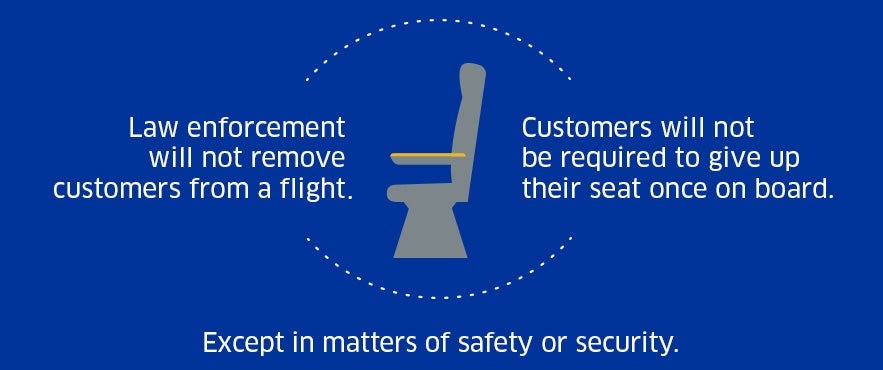
Another challenge in Dao's case was that the airline only offered volunteers up to $800, which was not enough compensation to convince other passengers to give up their seats. As of tomorrow, agents will be able to offer up to $10,000 in travel credits (though it's unlikely we'll see the airline reach that figure in practice).

Here are some interesting facts related to denied boarding, according to United's report:

- Last year, 95.6% of "denied boarding customers" were volunteers.
- Based on DOT stats, 3,765 customers were denied boarding involuntarily, of the airline's 86.8 million customers last year.
- Some seats may need to be left empty due to weight restrictions, typically as a result of winter weather conditions.
- Smaller aircraft may be substituted to avoid canceling a flight, resulting in as many as 50 overbooked seats.
- United is sometimes required to deny boarding in order to accommodate flight crews and avoid canceling another flight, as was the case with flight 3411. As of April 14, these crews must book a flight at least 60 minutes prior to departure.
- Approximately 4% of United flights end up with more passengers than seats due to overbooking. United's reports states that "adjustments have been made to reduce overbookings" — details can be found below.
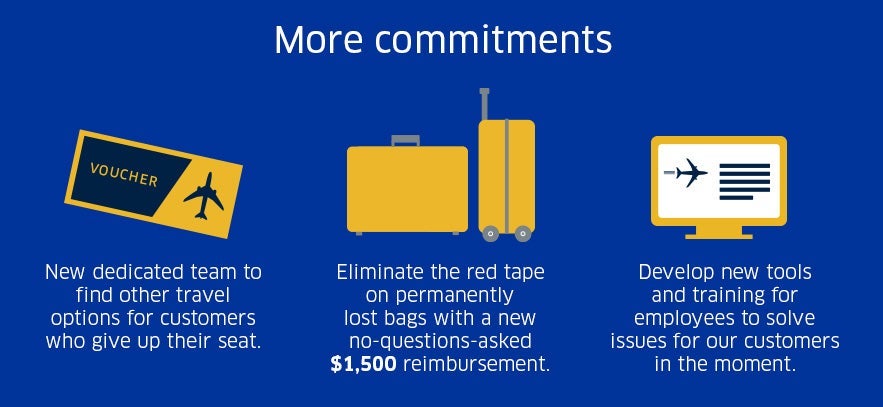
United is adding a special "customer solutions team" to help deal with these denied boarding issues. This team "should be operational by June" and will be able to assist gate agents by identifying alternate airports, rebooking customers on nonstop flights or offering ground transportation to customers and crews when practical.
Then, later this year United will launch a new automated system that "will gauge a customer's interest in giving up his or her seat on overbooked flights in exchange for compensation." A customer could then receive the compensation amount they requested at check-in at the airport or via the United app, which sounds like the bidding system Delta already has in place.
Additionally, the airline is launching a new "in the moment" app that'll allow flight attendants (beginning in July) and gate agents (later in 2017) to offer mileage, travel vouchers or other compensation in response to service issues. And, while unrelated to Bumpgate, United will begin compensating passengers with a $1,500 check if the airline "permanently" loses a checked bag.
Below you'll find all 11 pages of the Review and Action Report:
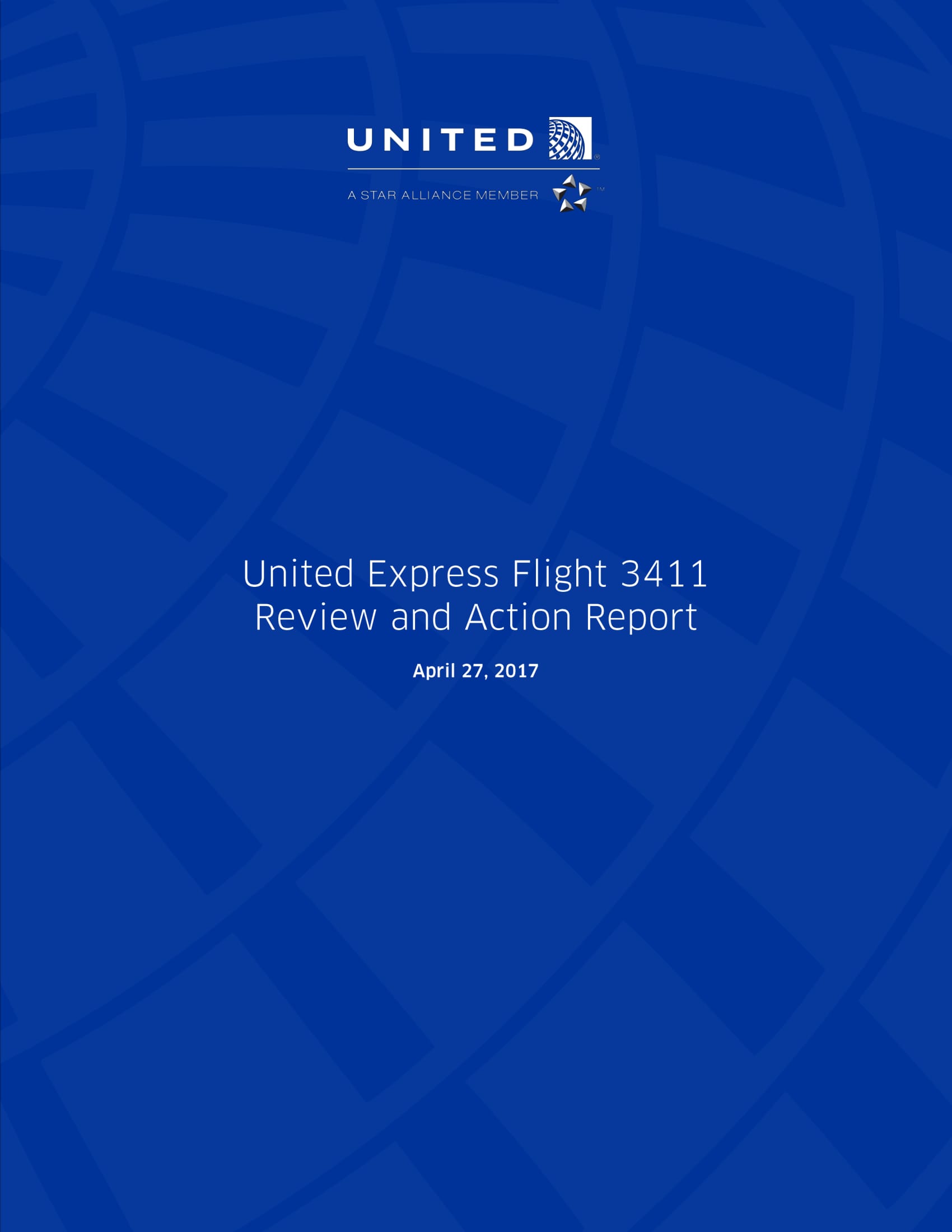
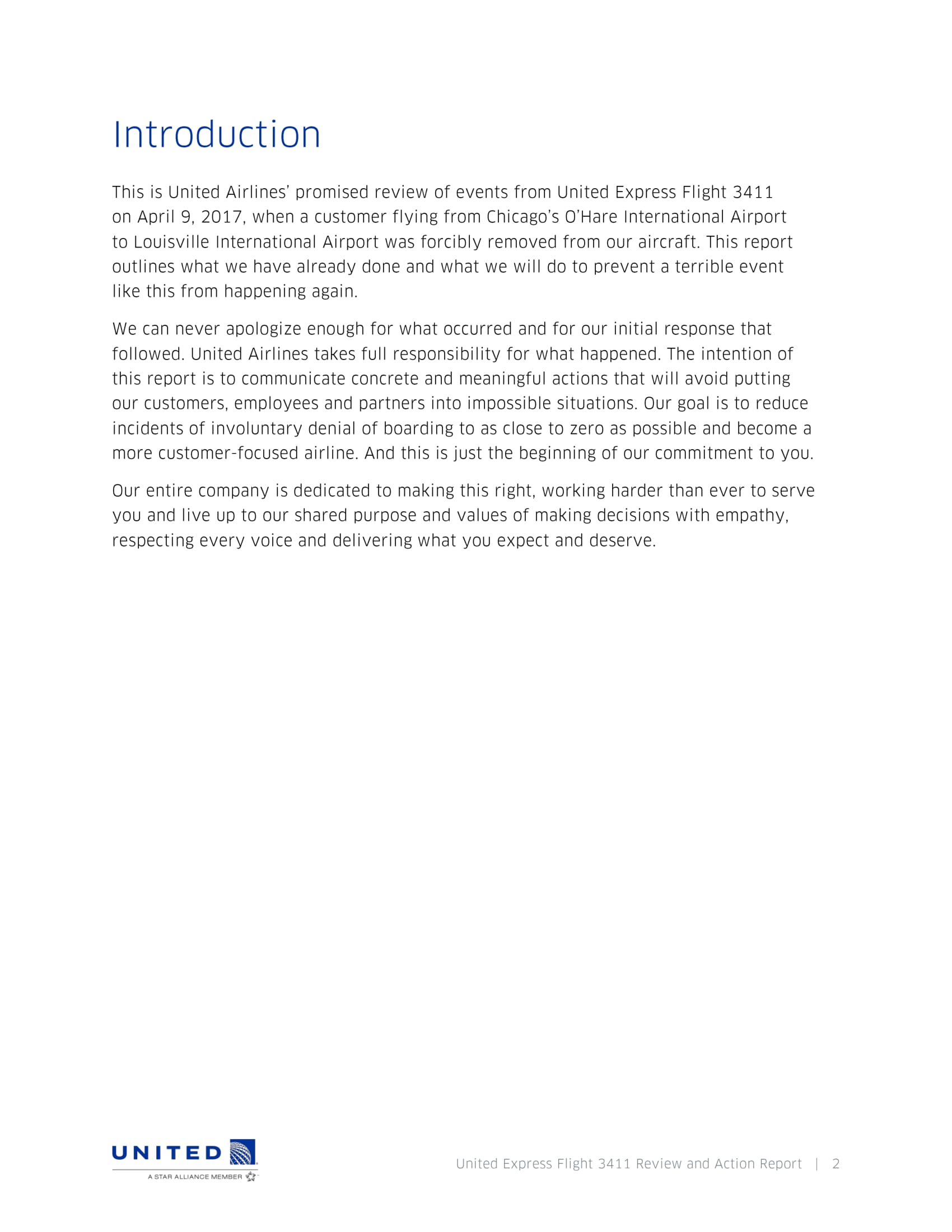
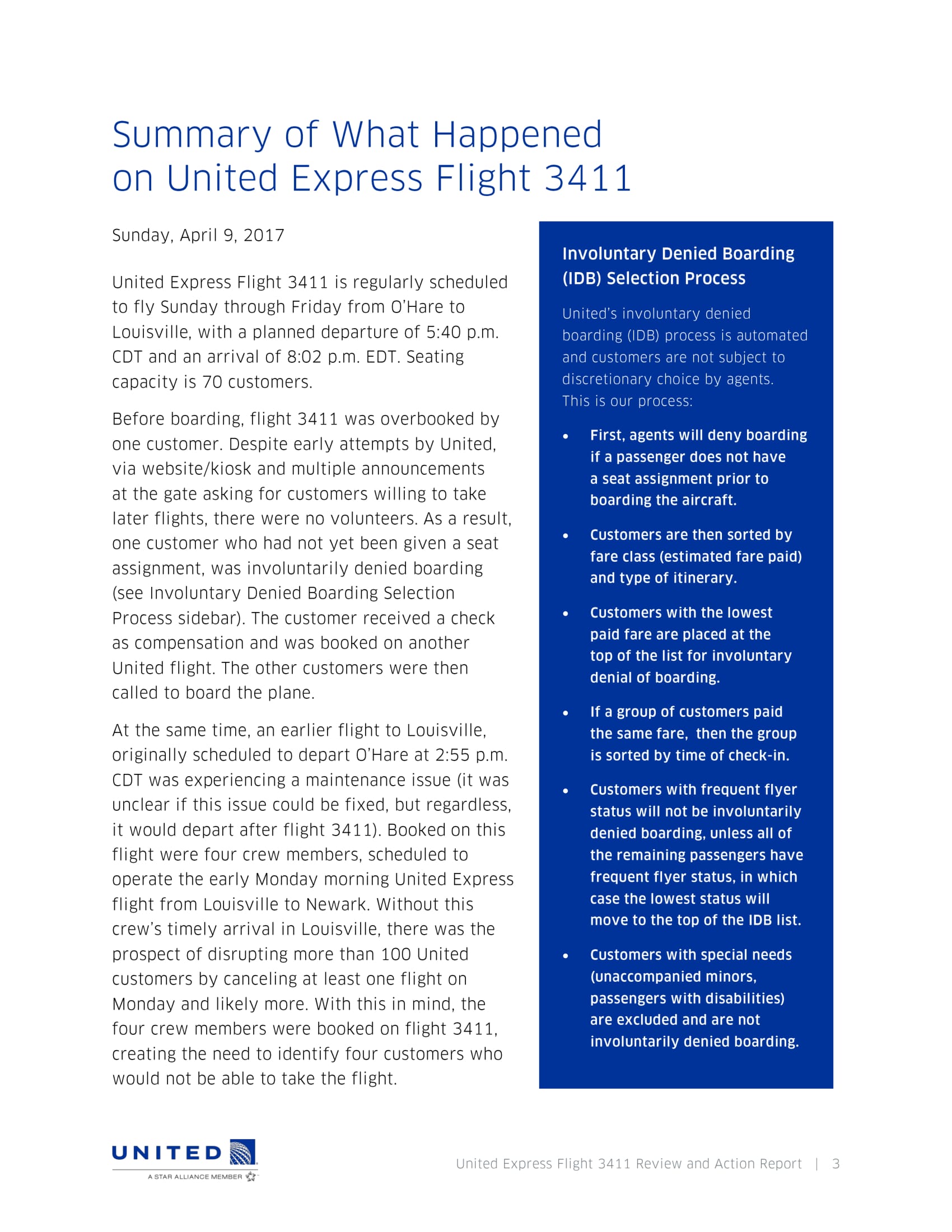
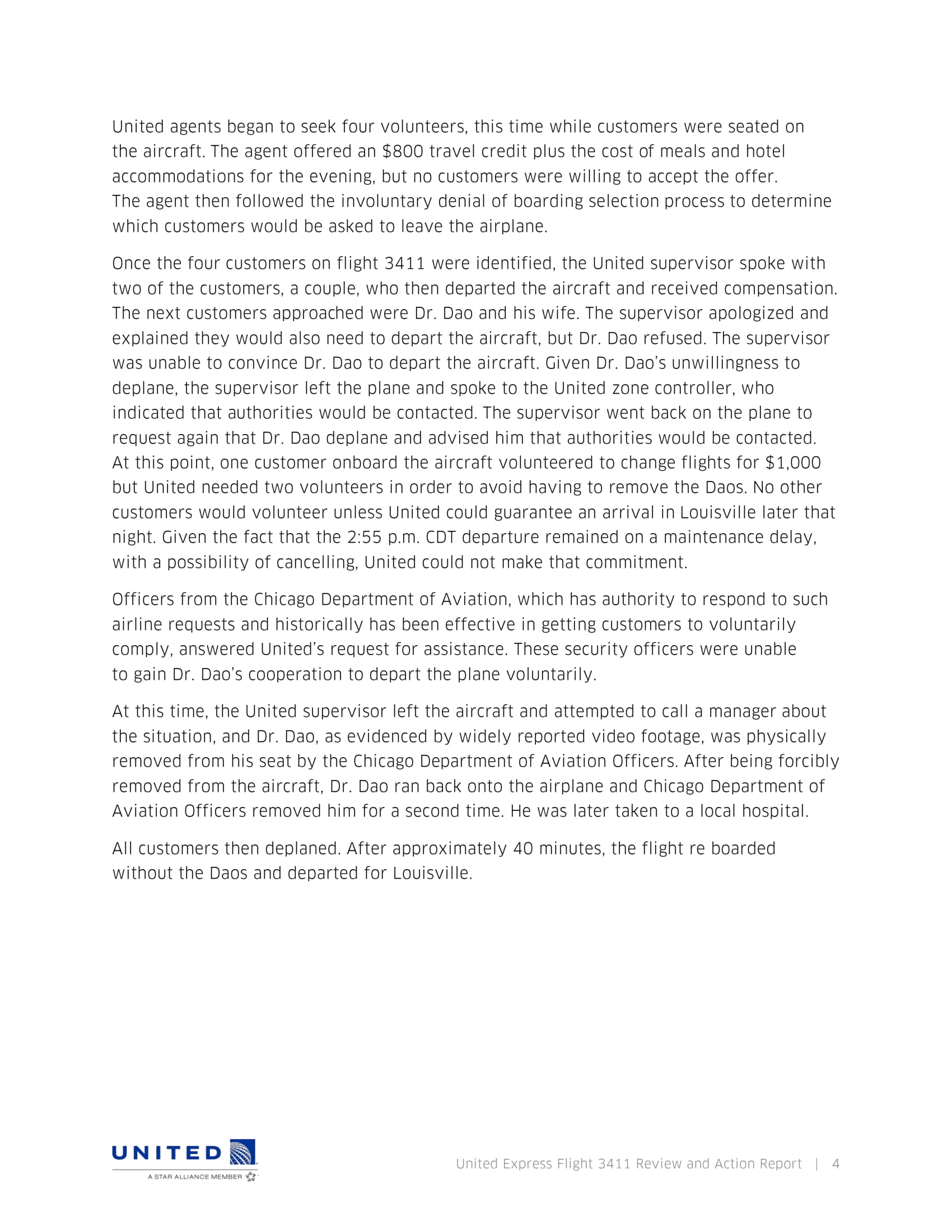
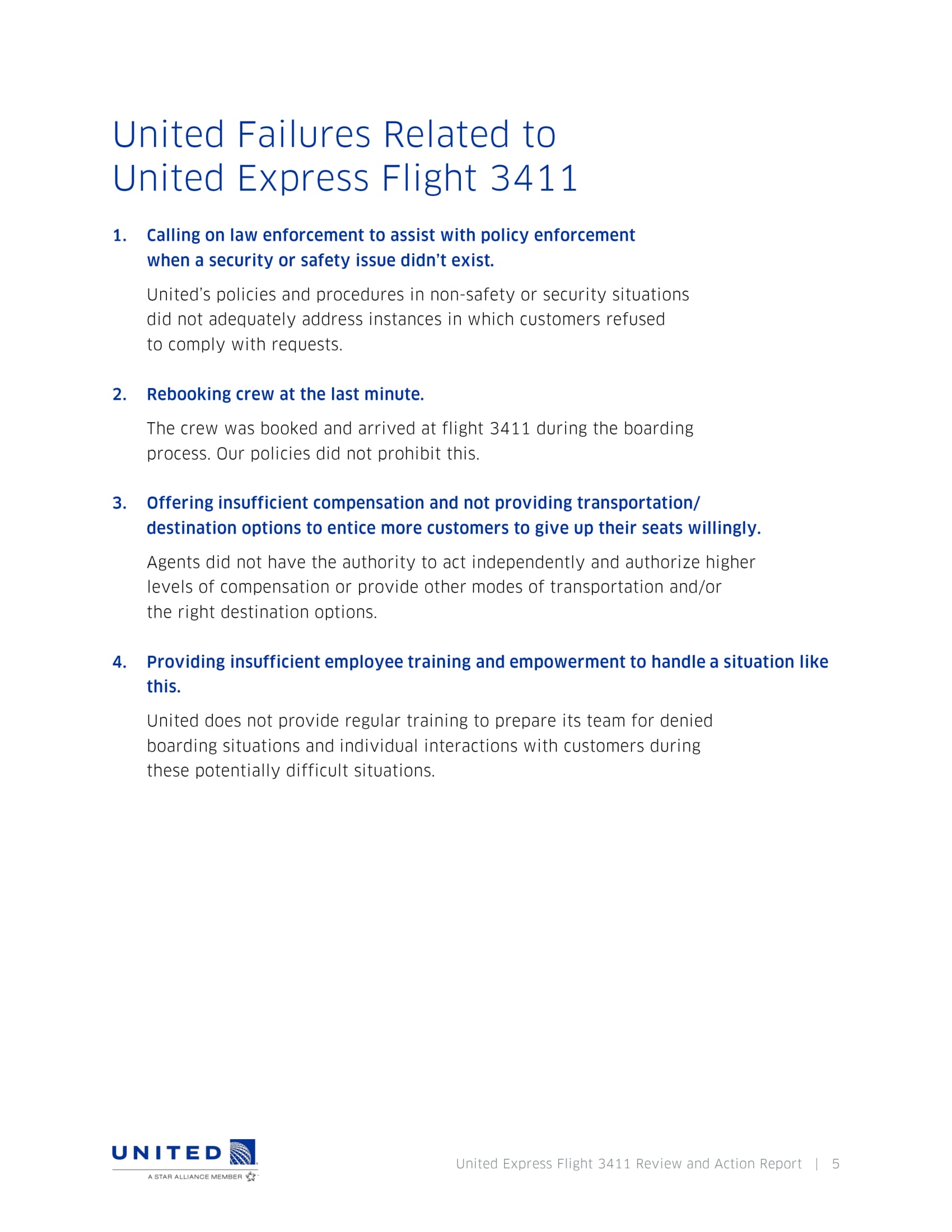
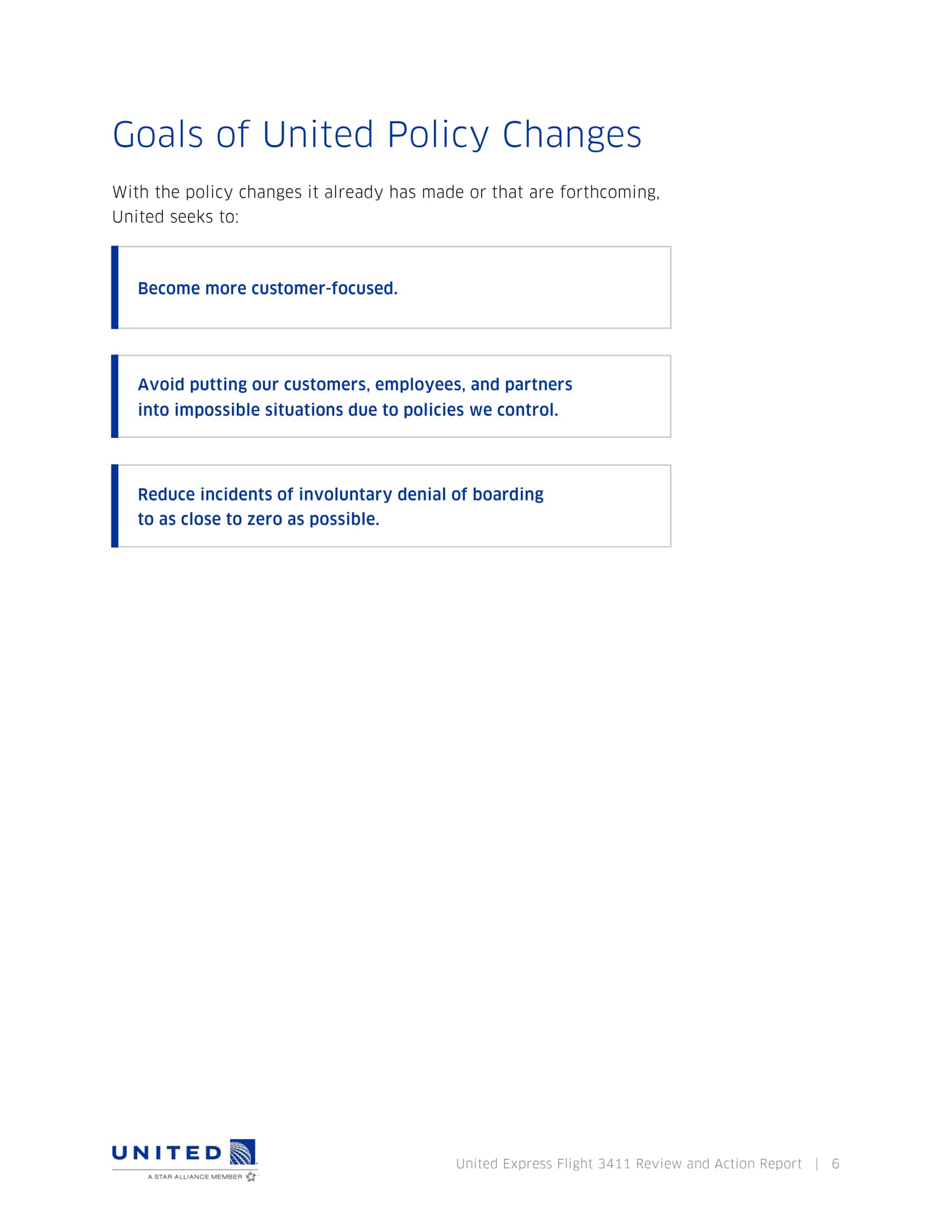
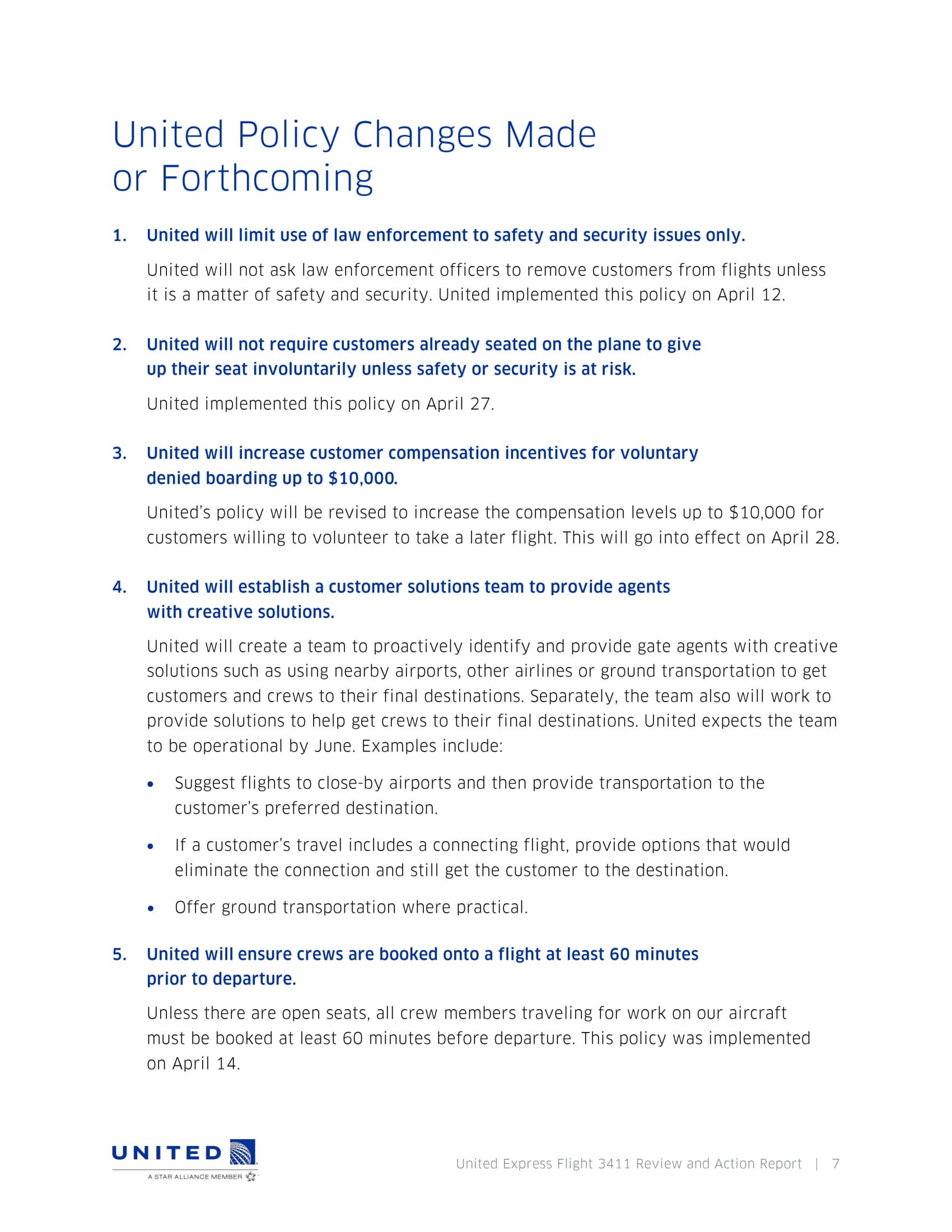
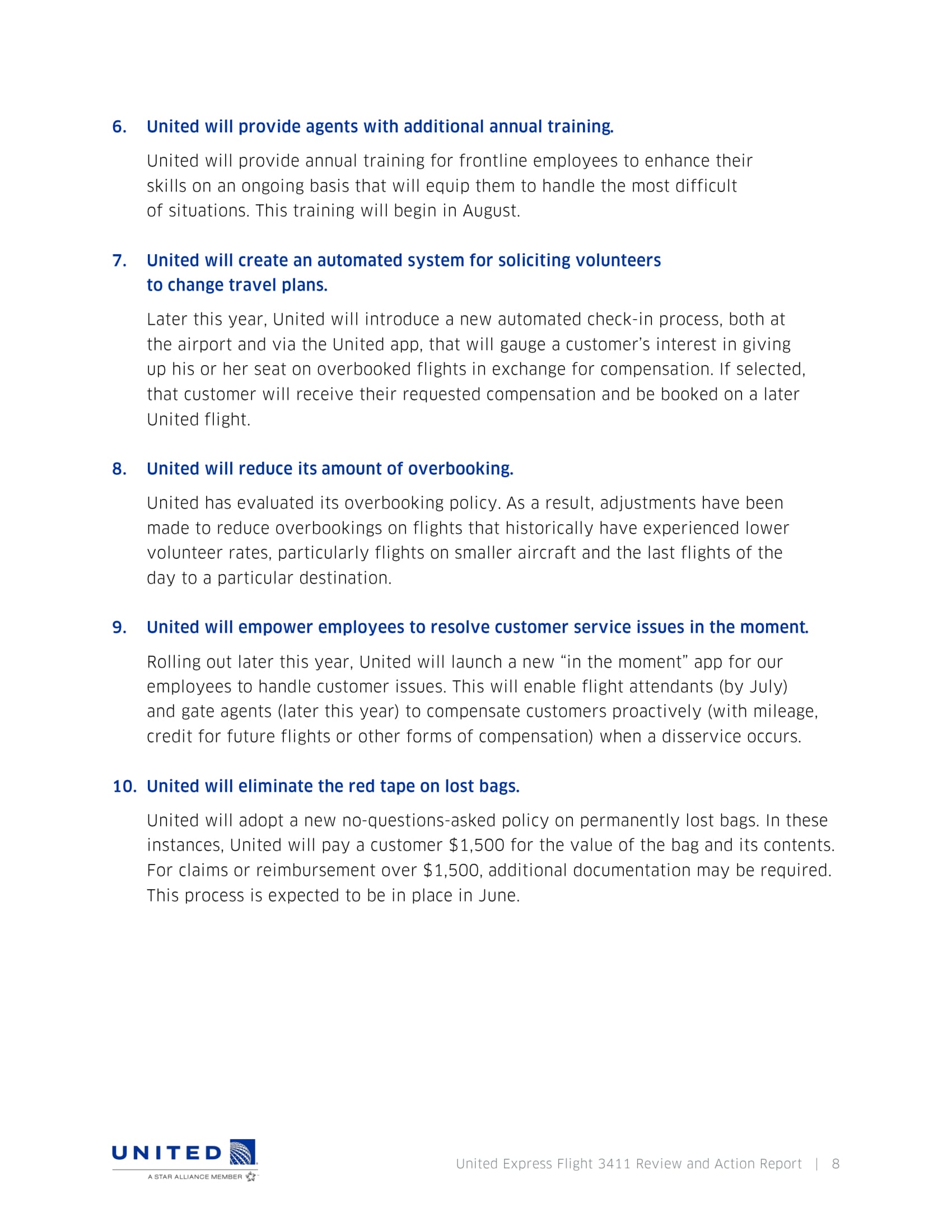
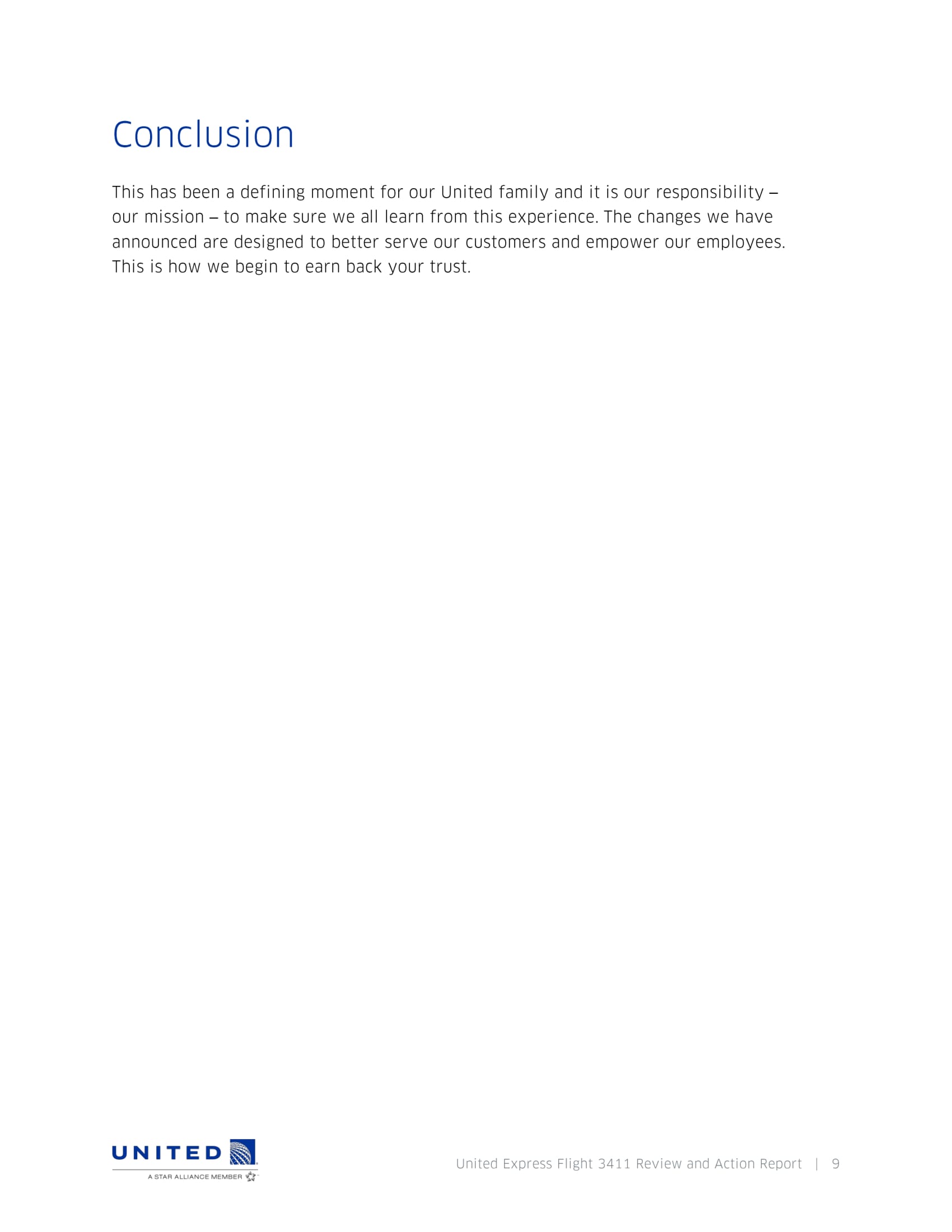
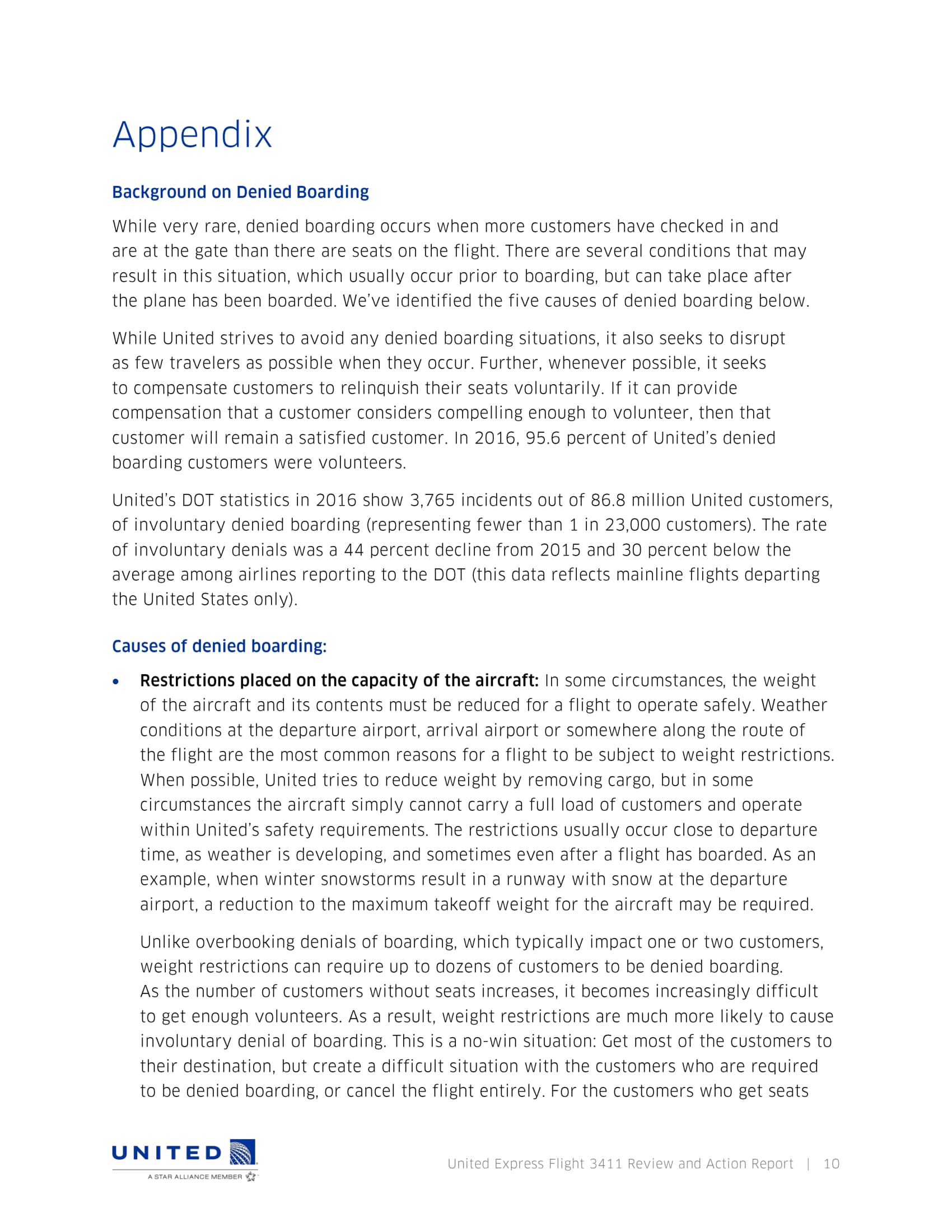
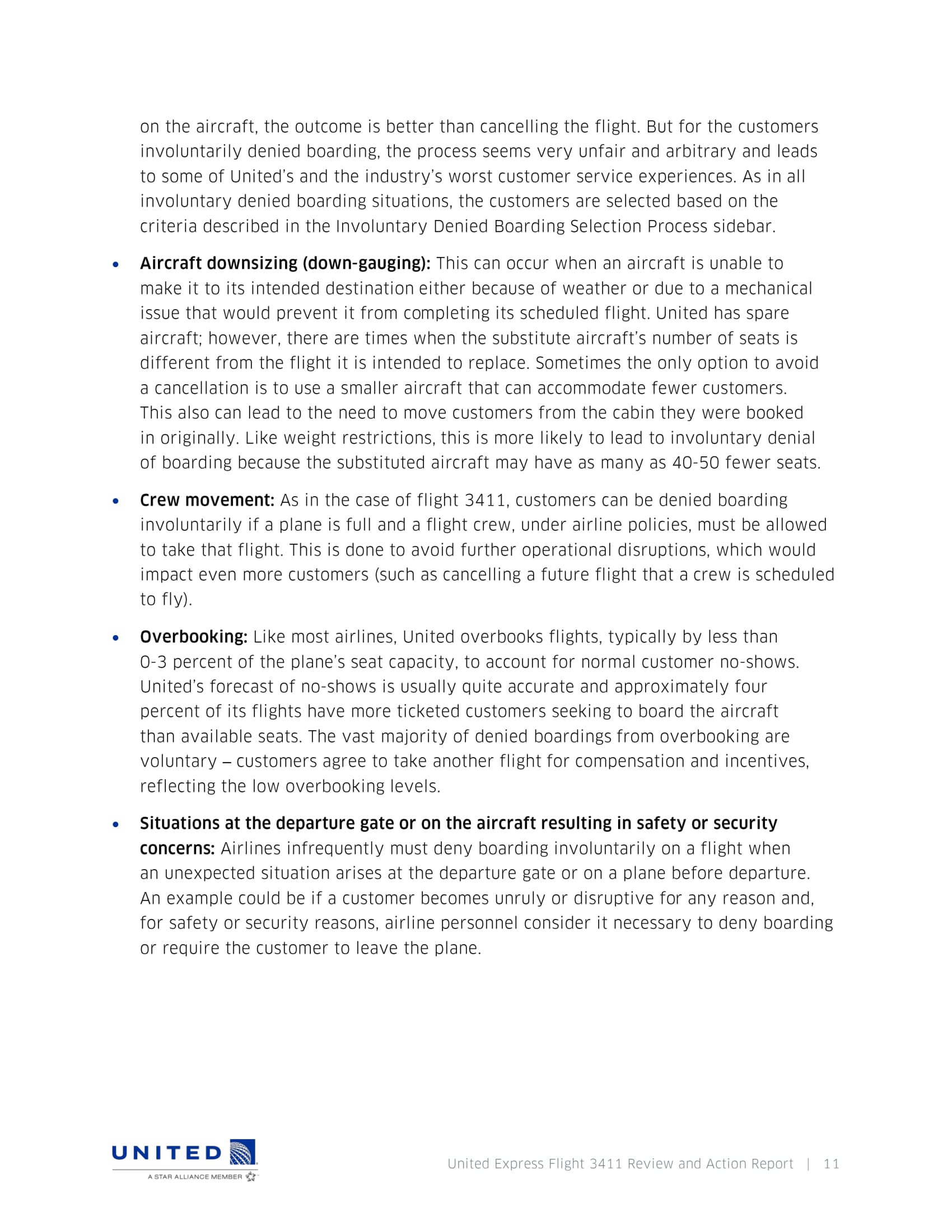
TPG featured card
at Capital One's secure site
Terms & restrictions apply. See rates & fees.
| 5X miles | Earn 5X miles on hotels, vacation rentals and rental cars booked through Capital One Travel |
| 2X miles | Earn unlimited 2X miles on every purchase, every day |
Pros
- Stellar welcome offer of 75,000 miles after spending $4,000 on purchases in the first three months from account opening. Plus, a $250 Capital One Travel credit to use in your first cardholder year upon account opening.
- You'll earn 2 miles per dollar on every purchase, which means you won't have to worry about memorizing bonus categories
- Rewards are versatile and can be redeemed for a statement credit or transferred to Capital One’s transfer partners
Cons
- Highest bonus-earning categories only on travel booked via Capital One Travel
- LIMITED-TIME OFFER: Enjoy $250 to use on Capital One Travel in your first cardholder year, plus earn 75,000 bonus miles once you spend $4,000 on purchases within the first 3 months from account opening - that’s equal to $1,000 in travel
- Earn unlimited 2X miles on every purchase, every day
- Earn 5X miles on hotels, vacation rentals and rental cars booked through Capital One Travel
- Miles won't expire for the life of the account and there's no limit to how many you can earn
- Receive up to a $120 credit for Global Entry or TSA PreCheck®
- Use your miles to get reimbursed for any travel purchase—or redeem by booking a trip through Capital One Travel
- Enjoy a $50 experience credit and other premium benefits with every hotel and vacation rental booked from the Lifestyle Collection
- Transfer your miles to your choice of 15+ travel loyalty programs
- Top rated mobile app


